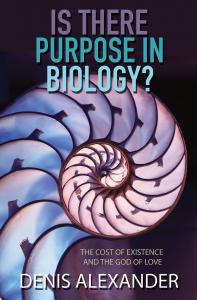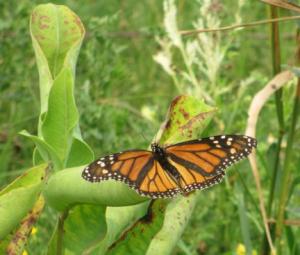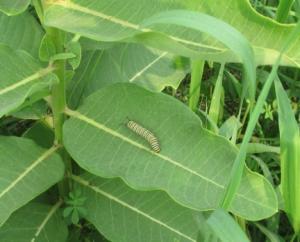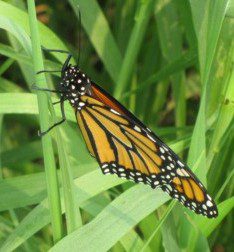 Yet another new book for our consideration.
Yet another new book for our consideration.
Denis Alexander, molecular biologist, former chair of the Molecular Immunology Programme at the Babraham Institute in Cambridge and emeritus director of the Faraday Institute for Science and Religion, has recently published Is There Purpose in Biology? The Cost of Existence and the God of Love. This should be interesting…
Purpose is one of those words that covers several different categories or concepts. Is life purposeful or purposeless? On one level there is, of course, purpose in biology. Stomachs are for the purpose of digesting food. The peacock’s plume and the beaver’s dam serve a purpose. The bright and beautiful colors of the Monarch Butterfly serve the purpose of warning potential predators that this insect is best left alone. It is distasteful and potentially poisonous thanks to the milkweed on which it feeds as a caterpillar and an adult. The pictures of Monarchs in this post were taken on my vacation in northern Minnesota last week. The Monarchs are beautiful and fascinating creatures – four generations a year, three short-lived (adults live two to five weeks) preparing for a long-lived fourth migratory generation surviving up to nine months to start the cycle again the next spring.
 When we ask about purpose in biology this type of purpose, designated small p purpose by Denis, is not the kind we mean. Small p purpose is uncontroversial although fascinating. Capital P Purpose is a metaphysical concept. Some have argued (or simply stated with certainty) that evolutionary biology demonstrates that Purpose is a meaningless concept in biology. Peter Atkins, Richard Dawkins and Daniel Dennett have stated that there is no purpose in biology. As Denis puts it “Evolutionary biology itself, so the argument goes, renders it impossible that evolutionary history, taken overall, could have any rhyme or reason. Chance rules. Our own existence if a lucky accident. Things could have turned out very differently. Biology is necessarily Purposeless.” (pp. 14-15)
When we ask about purpose in biology this type of purpose, designated small p purpose by Denis, is not the kind we mean. Small p purpose is uncontroversial although fascinating. Capital P Purpose is a metaphysical concept. Some have argued (or simply stated with certainty) that evolutionary biology demonstrates that Purpose is a meaningless concept in biology. Peter Atkins, Richard Dawkins and Daniel Dennett have stated that there is no purpose in biology. As Denis puts it “Evolutionary biology itself, so the argument goes, renders it impossible that evolutionary history, taken overall, could have any rhyme or reason. Chance rules. Our own existence if a lucky accident. Things could have turned out very differently. Biology is necessarily Purposeless.” (pp. 14-15)
 Denis Alexander challenges the idea that biology is necessarily Purposelessness. He does not claim that Purpose can be inferred from biology. Rather, he will argue that the assertion that it is necessarily Purposeless is a metaphysical assumption divorced from the biological science. Purpose is consistent with evolutionary biology; at least as consistent as the absence of Purpose. While random and contingent events may point to Purposelessness, the physical constraints that shape biology and life suggest that Purpose is also a reasonable hypothesis. The tools of science are simply not designed to address the question of Purpose. Science, Denis writes, “can render certain metaphysical inferences less plausible, but trying to establish metaphysical worldviews based on science quickly leads to problems.” (p. 14)
Denis Alexander challenges the idea that biology is necessarily Purposelessness. He does not claim that Purpose can be inferred from biology. Rather, he will argue that the assertion that it is necessarily Purposeless is a metaphysical assumption divorced from the biological science. Purpose is consistent with evolutionary biology; at least as consistent as the absence of Purpose. While random and contingent events may point to Purposelessness, the physical constraints that shape biology and life suggest that Purpose is also a reasonable hypothesis. The tools of science are simply not designed to address the question of Purpose. Science, Denis writes, “can render certain metaphysical inferences less plausible, but trying to establish metaphysical worldviews based on science quickly leads to problems.” (p. 14)
 In Is There Purpose in Biology? Denis Alexander will consider the history of thought on purpose in biology, some examples from biology that might point to Purpose, and the role that probability and random chance play in evolutionary history. It should make for interesting reading, good posts, and interesting discussion. Certainly the presence or absence of purpose has been a question often raised in response to posts on this blog. Denis is a good writer. His book, Creation or Evolution:Do We Have to Choose? has been a favorite with many. Read along as we go if you are interested.
In Is There Purpose in Biology? Denis Alexander will consider the history of thought on purpose in biology, some examples from biology that might point to Purpose, and the role that probability and random chance play in evolutionary history. It should make for interesting reading, good posts, and interesting discussion. Certainly the presence or absence of purpose has been a question often raised in response to posts on this blog. Denis is a good writer. His book, Creation or Evolution:Do We Have to Choose? has been a favorite with many. Read along as we go if you are interested.
Where might we find Purpose in biology?
Is biology, and thus life, Purposeless?
If you wish to contact me directly, you may do so at rjs4mail[at]att.net.
If interested you can subscribe to a full text feed of my posts at Musings on Science and Theology.















